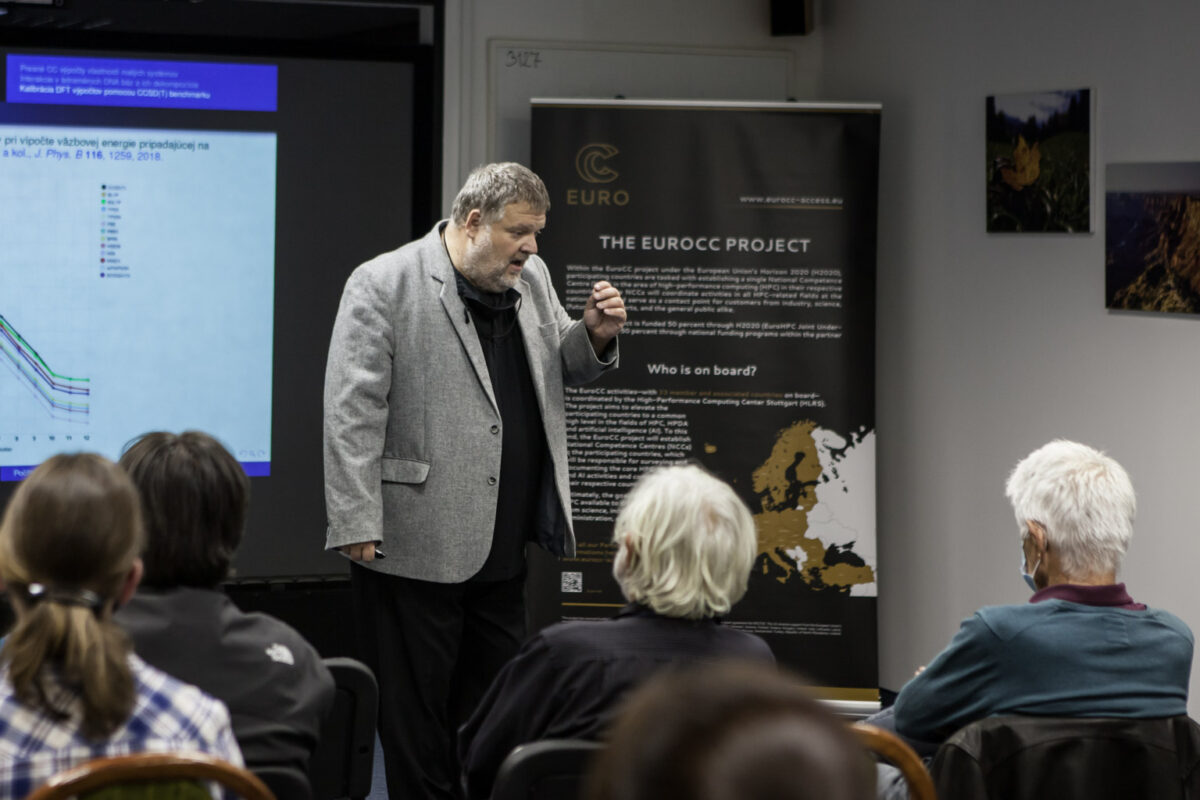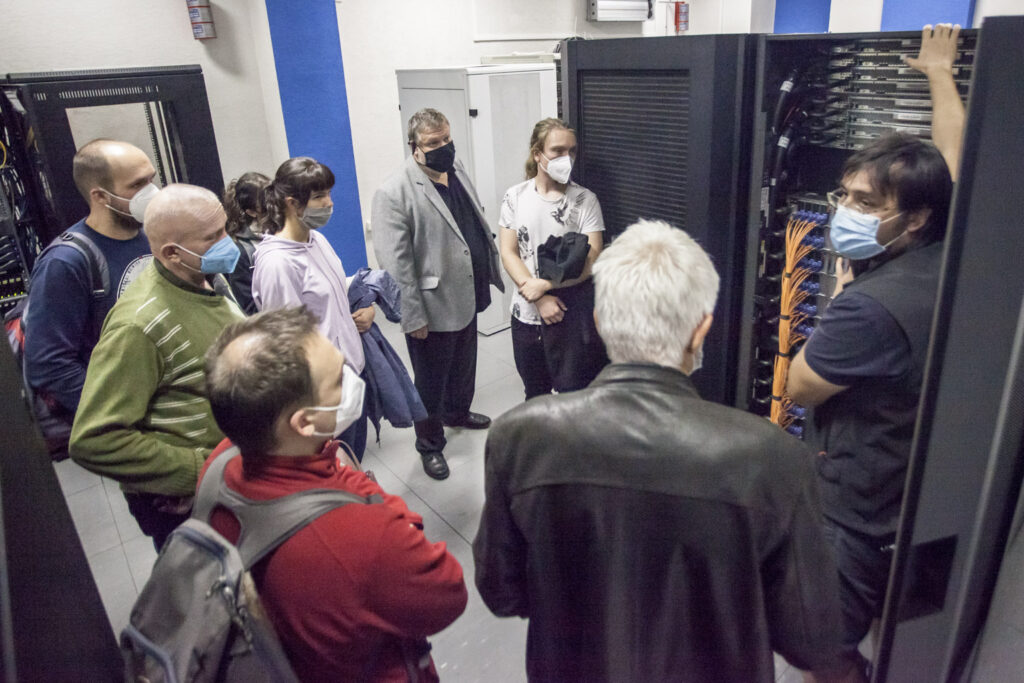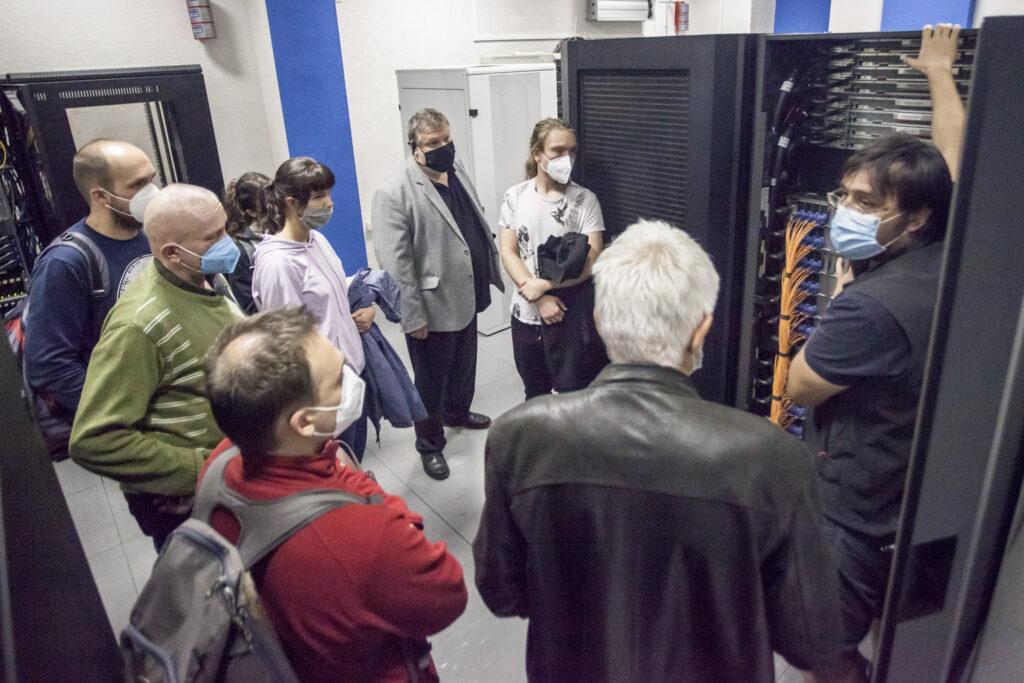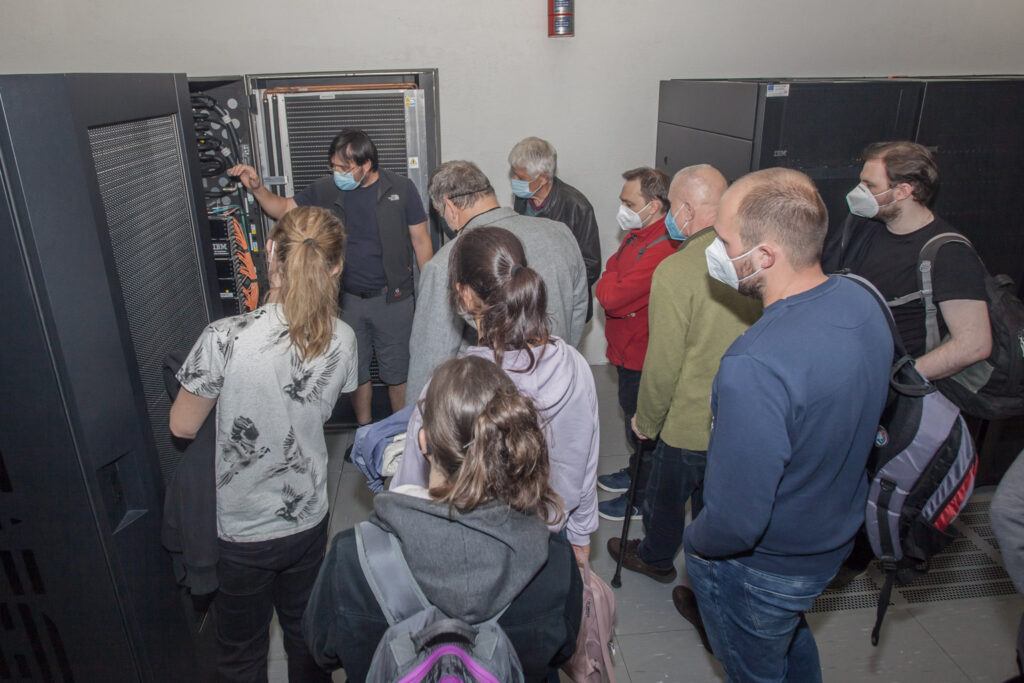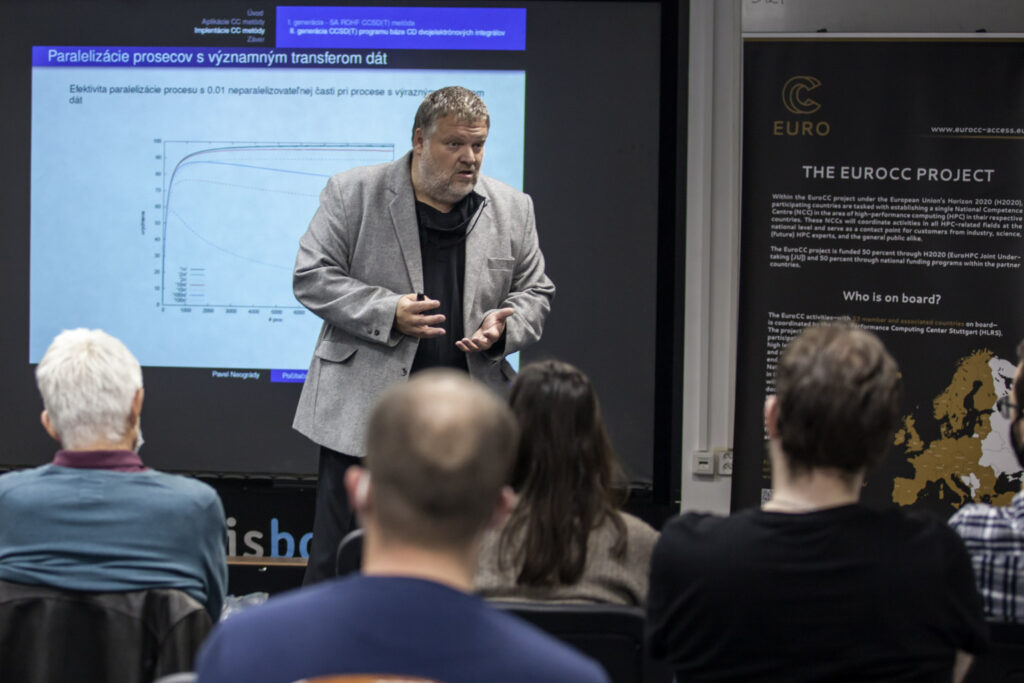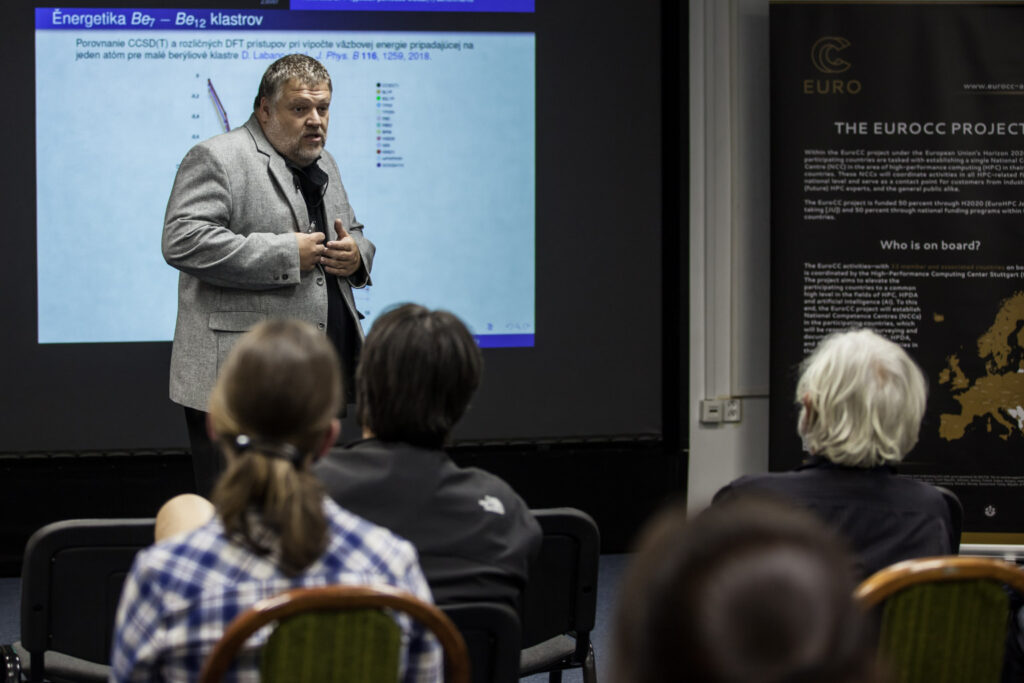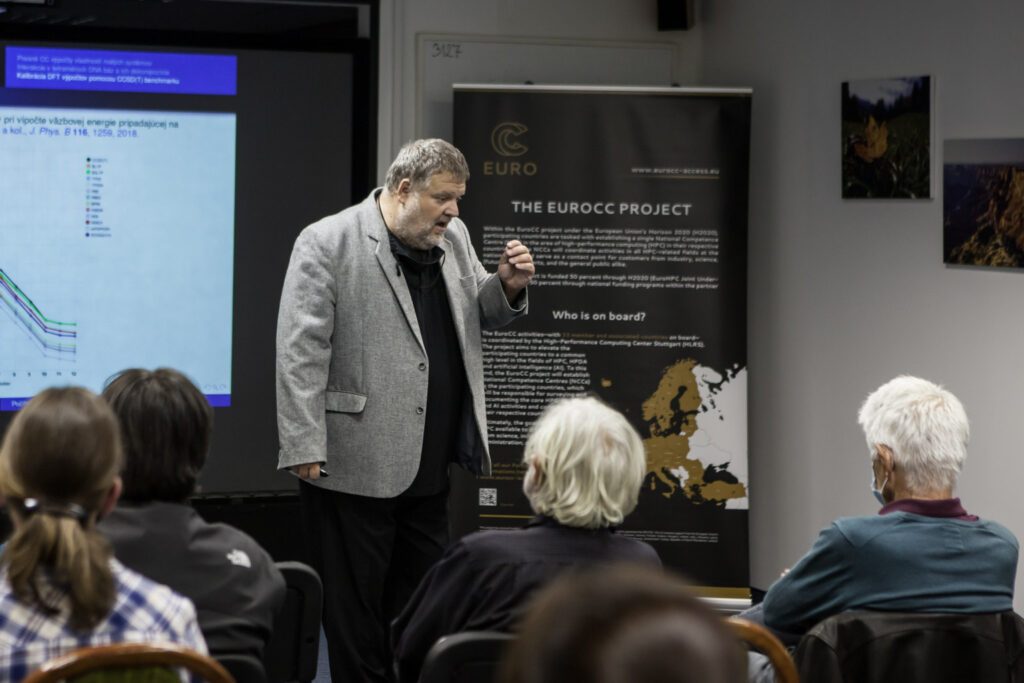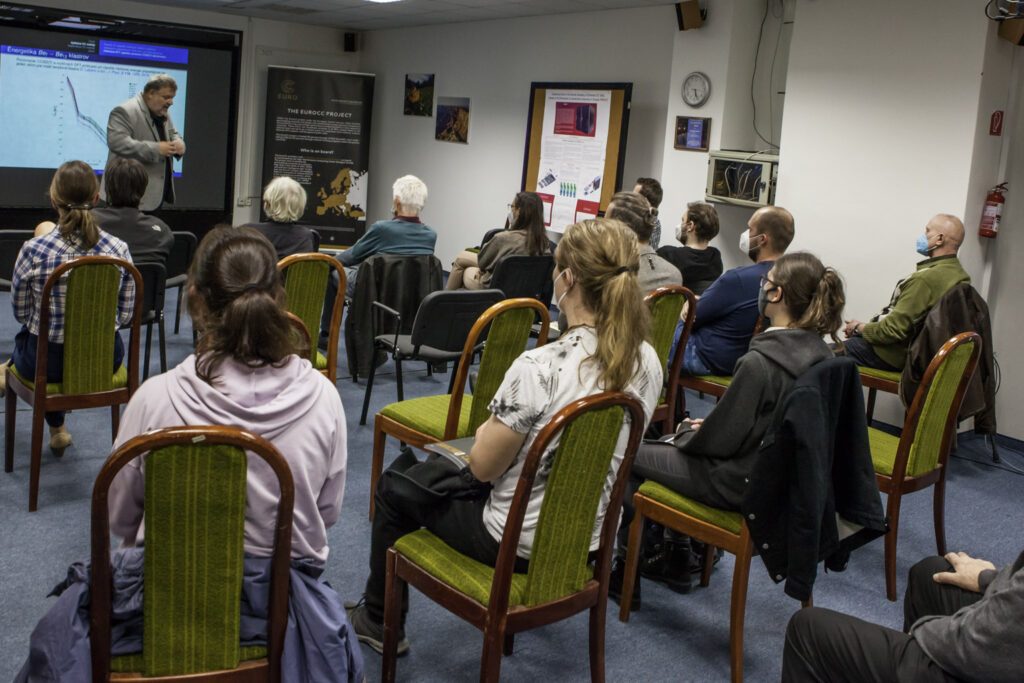Can we exploit the HPC possibilities in basic research effectively?
On October 12, 2021 the second lecture of our „Supercomputing in science“ series took place on the premises of the Computational centre of the Slovak Academy of Sciences Pavel Neogrády from the Department of physical and theoretical chemistry of the Faculty of Natural Sciences CU talked about highly accurate computational methods in the field of theoretical chemistry and about their complexity and numerical intricacies.
There are a lot of HPC users in Slovakia that work with this type of applications and algorithms in their research. As one of the developers of chemical modelling methods Pavel also elaborated on his experience with effective software parallelization and described the main issues in the implementation. Although the computational cost of these methods is prohibitive for modelling larger systems, they are used for calibrating of other methods capable of describing and predicting properties of complex molecules, such as new drugs or materials.
Lecture series is a joint activity of the Computer museum COO SAS and National Competence Center for HPC. NCC, as the primary contact point for HPC in Slovakia, covers, among other things, educational and dissemination activities in this area.
You can watch the recording of the event on Facebook and YouTube and you can already register for our next lectures. Schedule and registration:
- October 26, 17:00 - Development of technology and computer architecture – from 1-processor serial computers to supercomputers
Martin Šperka (Computer Museum, COO SAS) - November 9, 17:00 - Operation systems in multiprocessor clusters
Dušan Bernát (Faculty of mathematics, physics and informatics, Comenius University) - November 23, 17:00 - Short guide to software parallelization
Jaroslav Suchánek (Biomedical Research Center, SAS) - December 7, 17:00 - Federated distributed computing
Ladislav Hluchý (Institute of Informatics SAS) - December 21, 17:00 - Modelling of 2D systems properties using the Quantum Monte Carlo methods
Ivan Štich (Institute of Physics SAS)
More information about the series
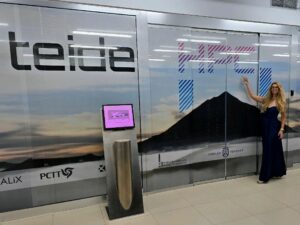 Building International Cooperation in HPC: Visit to ITER Tenerife and Teide HPC 17 Jul - At the beginning of July 2025, Lucia Malíčková, representative of the National Supercomputing Centre (NSCC) and the National Competence Centre for High-Performance Computing (NCC for HPC), had the opportunity to visit the renowned technological and research institution ITER – Instituto Tecnológico y de Energías Renovables, S.A. on the island of Tenerife.
As part of the working visit, she met with the center’s director Carlos Suarez and Jesús Rodríguez Alamo to discuss opportunities for establishing cooperation in the field of high-performance computing (HPC), research, development, and innovation using advanced technological infrastructures.
Building International Cooperation in HPC: Visit to ITER Tenerife and Teide HPC 17 Jul - At the beginning of July 2025, Lucia Malíčková, representative of the National Supercomputing Centre (NSCC) and the National Competence Centre for High-Performance Computing (NCC for HPC), had the opportunity to visit the renowned technological and research institution ITER – Instituto Tecnológico y de Energías Renovables, S.A. on the island of Tenerife.
As part of the working visit, she met with the center’s director Carlos Suarez and Jesús Rodríguez Alamo to discuss opportunities for establishing cooperation in the field of high-performance computing (HPC), research, development, and innovation using advanced technological infrastructures.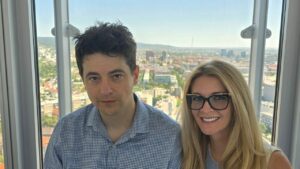 Meeting with Michal Valko, expert on large language models 15 Jul - The National Supercomputing Centre and the National Competence Centre for HPC, represented by Lucia Malíčková, met with prominent Slovak scientist Michal Valko, who is among the world’s leading experts in artificial intelligence and machine learning. They discussed opportunities for future collaboration, with a particular focus on leveraging Slovakia’s HPC capacities to support advanced research in large language models and algorithms that require minimal human feedback.
Meeting with Michal Valko, expert on large language models 15 Jul - The National Supercomputing Centre and the National Competence Centre for HPC, represented by Lucia Malíčková, met with prominent Slovak scientist Michal Valko, who is among the world’s leading experts in artificial intelligence and machine learning. They discussed opportunities for future collaboration, with a particular focus on leveraging Slovakia’s HPC capacities to support advanced research in large language models and algorithms that require minimal human feedback.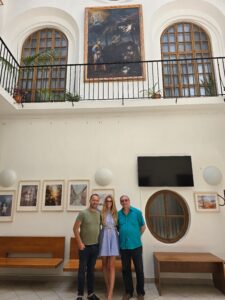 Data, Theology and HPC: A Collaboration Seeking Paths to Understanding 8 Jul - Continuing our collaboration with the Faculty of Theology at Trnava University!
The National Supercomputing Centre (NSCC) and the National Competence Centre for HPC will continue their collaboration with the Faculty of Theology at Trnava University in 2025. Following a successful joint study that demonstrated the potential of artificial intelligence and high-performance computing in the analysis of religious texts, representatives of both institutions met again to identify new areas and opportunities for future joint projects.
Data, Theology and HPC: A Collaboration Seeking Paths to Understanding 8 Jul - Continuing our collaboration with the Faculty of Theology at Trnava University!
The National Supercomputing Centre (NSCC) and the National Competence Centre for HPC will continue their collaboration with the Faculty of Theology at Trnava University in 2025. Following a successful joint study that demonstrated the potential of artificial intelligence and high-performance computing in the analysis of religious texts, representatives of both institutions met again to identify new areas and opportunities for future joint projects.
